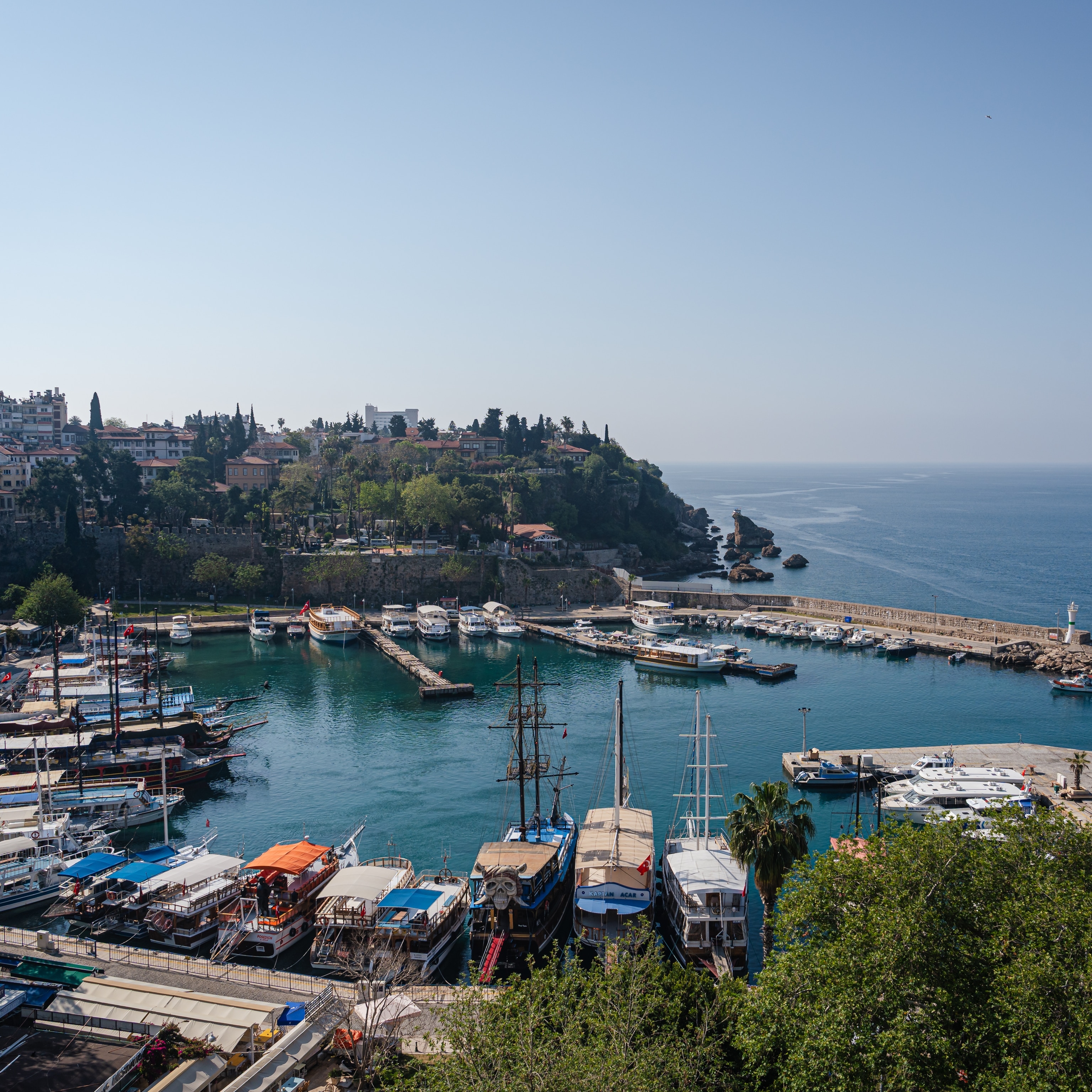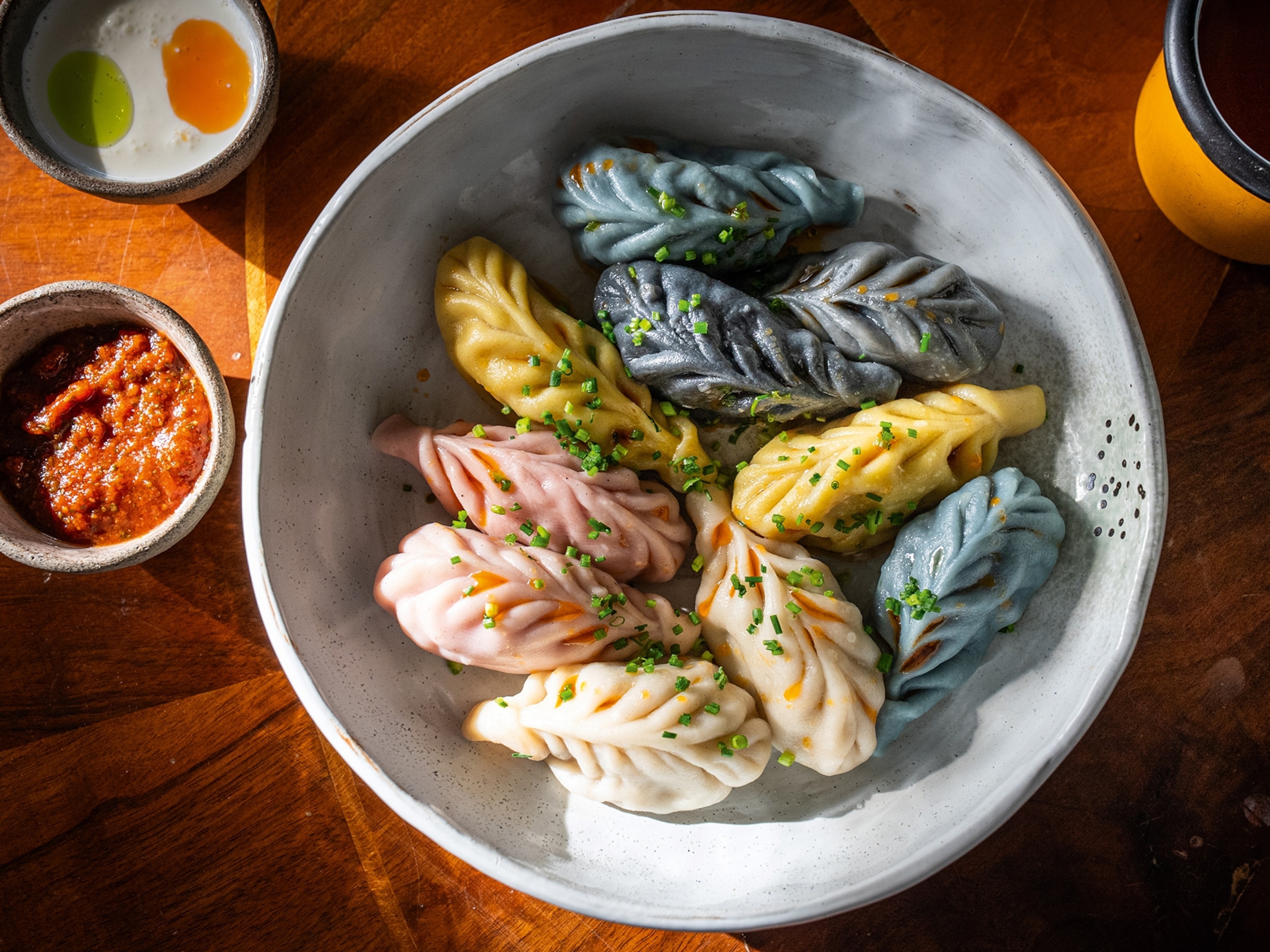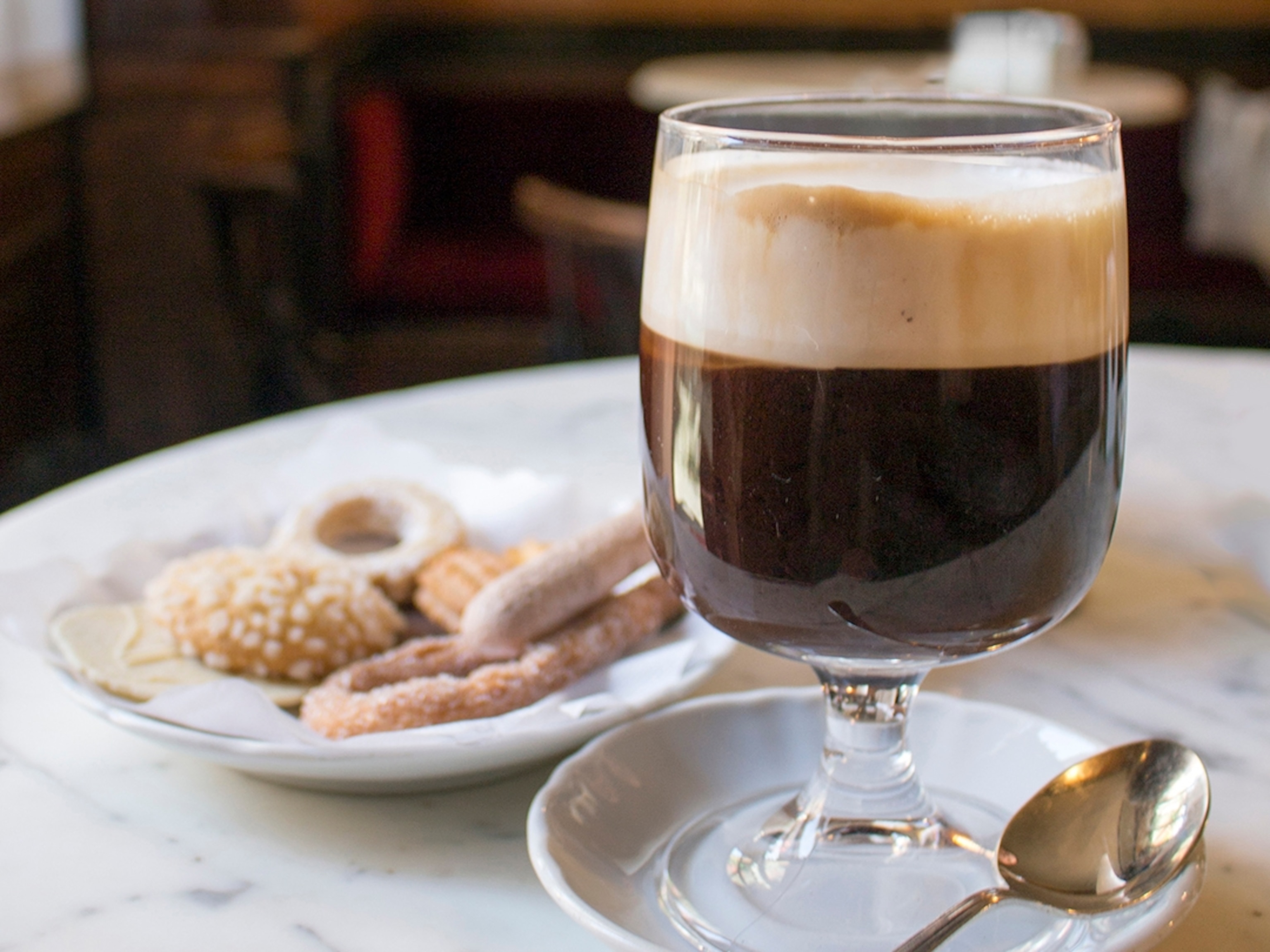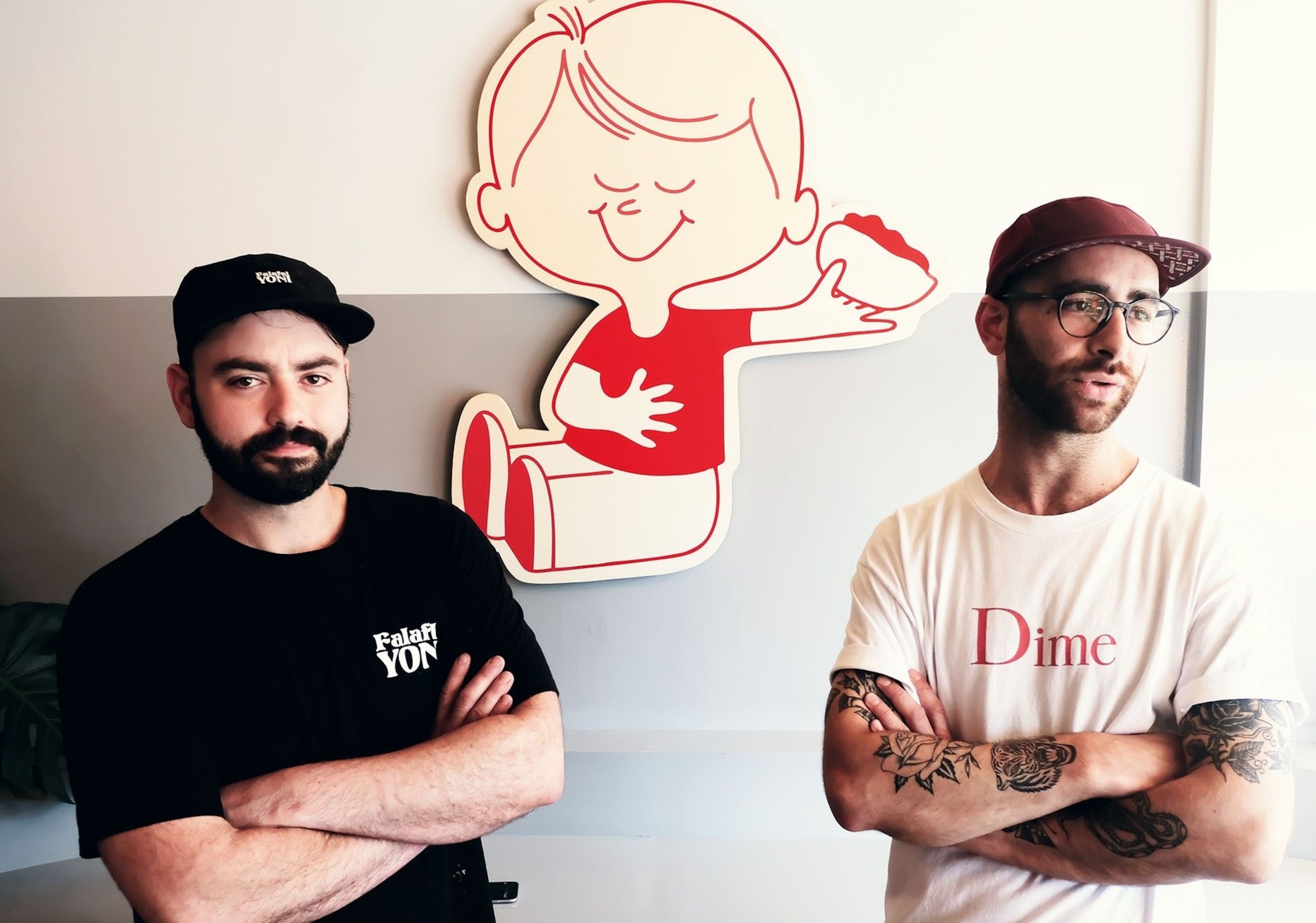
Where to eat the best Jewish food in Montreal
A strong Jewish influence is writ large across Montreal’s cuisine with old-school bakeries and diners alongside young upstarts putting a fresh spin on the classics
The vexed question of the bagel has preoccupied North America for more than a century; when boiled (and it must be boiled, everyone agrees on that) down to essentials, it’s a matter of identity. Which is more sophisticated: big and fluffy New York, or chewy, slightly sweet Montreal, with its egg and honey-water dough? There’s a light dusting of irony in the fact that both varieties of bagel arrived on the continent with Jewish refugees from Russian pogroms, who would have held few claims to sophistication. But the underlying issue is an anxious and piercingly relevant one: how much should a migrant culture change?
If you wander the leafy (or, in winter, snowbound) streets of Montreal’s Mile End, you may become convinced that some cultures don’t change at all. The Hasidim, ultra-Orthodox Jews, have bushy beards, temple ringlets and high black homburgs; sometimes, wonderfully, they wear shtreimels (round fur hats), and speak Yiddish. To me, whose mother refused to teach Yiddish (“a dying language”), that may be the most wonderful aspect of all.
Looking at the Hasidim, you might believe the myth that Judaism survives by stubbornly refusing to evolve. However, the Jewish food of Montreal tells a different story. The so-called traditional dishes — bagels and smoked meat, the delectably greasy, brined brisket that’s cousin to pastrami — only arrived with the Eastern European Ashkenazim Jews in the 1900s, but the city has had a community since the 18th century, and those Sephardim (Jews whose antecedents travelled from Spain to north Africa and the Levant) eat very differently. If my family’s culinary background features the kind of hefty, unaesthetic stodge so often associated with Eastern European cuisine, my Sephardi friends can boast saffron and pomegranate, parsley and red peppers: flavours and colours that bloom in sunlight.
There have been other changes. Montreal’s purveyors of traditional Jewish food aren’t Orthodox; these days, many aren’t even Jewish. The Berenholc family still run Lester’s Deli, with its crazy selection of tchotchkes (ornaments and collectibles, irresistible to dust) but Schwartz’s Deli, a Montreal smoked meat institution so famous that tourists queue for their opportunity to take one delicious, saltpetre-pink step closer to a heart attack, is now part-owned by Celine Dion. At Wilensky’s, immortalised by Mordecai Richler in the novel The Apprenticeship of Duddy Kravitz, Moe’s daughter Sharon Wilensky still makes their famous salami and bologna sandwiches, but her mother Ruth died last March, aged 98. Meanwhile, Hymie Sckolnick, ever-present founder of Beauty’s Luncheonette, passed away in 2017, at 96.
Of the two great bagel joints — their wood-ovens fired up 24 hours a day, 365 days a year — St-Viateur, opened in 1957 by a Holocaust survivor, now belongs to Italians, although the Schlafman family still owns Fairmount. Every Montrealer, Jewish or gentile, has their preference; even frequent visitors do (Fairmount, since you ask. Every time). And of course, they’ll all unite against the scorned New York bagel. Montreal, a city of two principal cultures, capital of a province that views itself as a Francophone island in an English-speaking, neo-American sea, is really, really good at rivalry. No wonder the Jews, with our proud tradition of never agreeing on anything, feel at home.
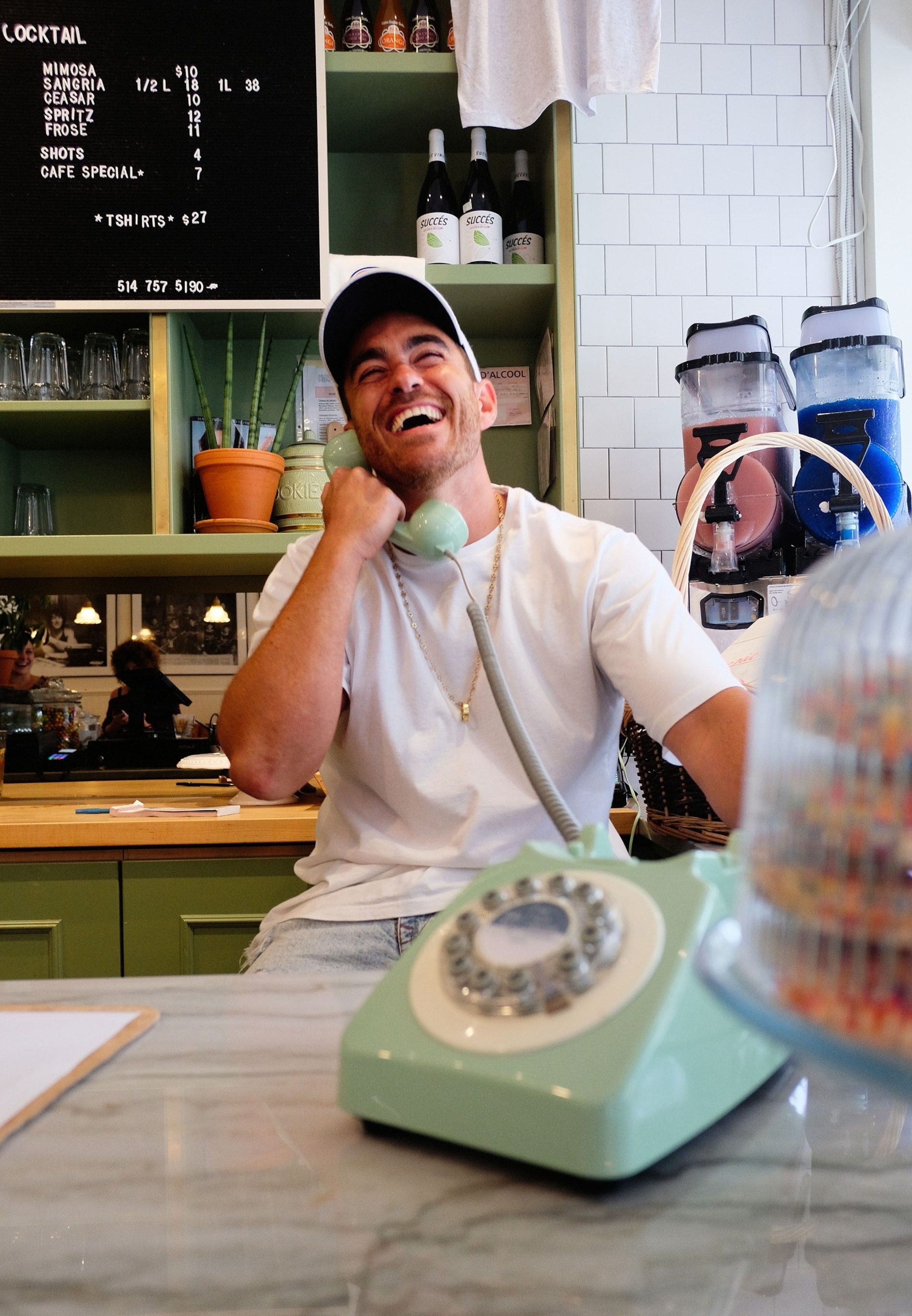
Some have even begun to remake that home’s gastronomy. Raegan Steinberg and her husband, Alex Cohen, opened Arthurs Nosh Bar in the Saint-Henri quarter in 2016. Their freewheeling dishes blend tradition (cream cheese schmear, Fairmount bagels) with modernity, including that essential modern ingredient: artisanship. So there’s smashed avocado on toast, but scrambled eggs come with a latke (potato pancake) and kosher salami. Alex’s Sephardi background inspires weekend dishes like shak (shakshuka), featuring salsa and tahini, and Moroccan toast (poached egg and marinated aubergine on challah with spiced chickpeas), but weekdays belong to the Ashkenazim.
Raegan’s family, the Steinbergs, were legendary grocers until the company failed in the 1990s. She named this joint for her father, who died of cancer aged 56, and we talk much-missed fathers: mine, a fresser (enthusiastic eater) would have loved Arthurs. This was supposed to be a catering operation, Alex says, gesturing around the white-tiled walls and closely packed, marble-topped tables. Plenty of doubts were aired when they changed tack: “You’re opening a Jewish restaurant in Montreal? Are you crazy?” Still, Arthurs, which doesn’t take reservations, has become so popular queues wind out the door on weekends, and Alex dreams of opening in cities across the globe.
Just 10 minutes’ walk on Notre-Dame Street West, warm lighting sets off the pale wood and exposed brick at Sumac, which focuses on traditional Sephardi dishes. This place is casual, with a menu board and counter service. The falafel are crisp and moist, the red cabbage crunchy, the pita baked in the premises’ oven and Middle Eastern seeds and spices are used liberally (chef Raquel Zagury’s father is Moroccan). Portions are, frankly, enormous. The fressers at the next table live across the road; sheepishly they admit to eating here at least twice a week.
Another crop of new Jewish restaurants clusters about the street that bisects Montreal: Saint Laurent Boulevard, known as the Main. A block away, childhood friends Daniel Maislin and Yoni Amir have opened tiny Falafel Yoni. There’s no licence — in fact legally, no restaurant: they’re operating on a grocery permit. But the pair have a cool, stripped-back space and a correspondingly simple menu: falafel in pita or salad, sabich (an Israeli pita sandwich with aubergine, tahini and eggs) and chips. Spicy sauce if desired, although it’s not that spicy.
The ingredients overflow; if there’s one theme common to all these eateries, it’s the fear that your guest may leave hungry. Everything here is vegan except the egg in the sabich, and Yoni, who was born in Israel, agrees that the tap in the middle of the restaurant references the Jewish obligation to wash one’s hands before eating; but motivation is aesthetic rather than religious. The family really can’t be frum (Orthodox) though: Yoni’s sister Sefi is co-owner of the superb Boucherie Lawrence, where the pork is all local — but it’s still pork.
Just above Mount Royal Avenue you’ll find Jeffrey Finkelstein’s airy bakery Hof Kelsten. Having worked at some of North America’s best restaurants, Jeffrey chose to return to his roots: the Jewish baked treats he remembers from childhood. At his place you can pick up rye bread and Friday challah, or stay for a Danish pastry or bowl of borscht.

Yet, not everyone can be said to be returning to their roots. Kat Romanow was born Italian-Catholic and discovered Judaism as an undergraduate, so she’s now converting. She runs a pop-up restaurant, The Wandering Chew, and is also director of food programming at the Museum of Jewish Montreal, which is mostly virtual — it runs excellent tours, delving into the city’s thorny history of immigration and exploitation.
The museum’s adjoining cafe, Espace Culinaire Fletchers, serves truly innovative dishes born from Kat’s determination to remedy the inexplicable lack of crossover between Jewish and Québécois food. The sababa salad glows with kale and za’atar-roasted cauliflower, while the gefilte fish tacos make inventive use of the traditional pallid moulded fish patties that taste good, but will never win a beauty pageant. “We’re trying to show that Jews eat really well — even the Ashkenazim,” says Kat proudly.
I’m out of time, but not out of options; Yoni tells me there’s even a kosher Chinese (“Is that a good idea?” I ask. He shrugs). Still, one outlier deserves a mention. Joe Beef, a 19th-century Irish-Canadian tavern owner, wasn’t Jewish, and nor are Fred Morin and David MacMillan, who named their original restaurant for him and now own a group of world-beating Montreal eateries. Raegan Steinberg, Alex Cohen and Jeffrey Finkelstein have all worked at Joe Beef; Hof Kelsten supplies their bread; and the most innovative neo-Jewish dish I’ve ever tasted is David MacMillan’s smoked-meat croquette. That blend of old and new, Jewish and gentile, French and English, thick skin and tender centre, is quintessential Montreal. And it’s delicious.
A taste of Montreal
Le Vin Papillon
Getting a table at Montreal landmark Joe Beef is never easy, but its sister restaurant two doors down doesn’t take reservations, so if you’re willing to queue you might be in luck. Come hungry, thirsty and loaded, as the dishes such as endive rarebit and smoked sturgeon gnocchi, plus the exceptional wine list, can lead to a hefty bill. Don’t expect change from C$100 (£60) per person for a few small plates, drinks and tip.
Larry’s Bar
Part of the same family of establishments as Boucherie Lawrence, one of the best butchers in the city, Larry’s specialises in small plates, good wine and excellent beers from Montreal’s thriving microbrewery scene. The food has a hint of the Middle East — celery root with preserved lemon, Jerusalem artichoke with za’atar — but there are also terrines, rillettes and charcuterie. A couple of plates and a glass of wine cost about C$50 (£30) with tip.
Lester’s Deli
With its Coca-Cola memorabilia, clippings of interviews with lifelong fan Jackie Mason and lunch boxes decorated with forgotten TV series, old-school Jewish establishment Lester’s has to be seen to be believed. There’s great smoked meat, as a glance at the old men mixing with the hip young things around you will confirm. A smoked meat sandwich with sides and a beer comes to about C$30 (£17.50) with tip.
Five food finds
Clamato juice
This blend of tomato and clam juice is definitely not kosher, but it’s an essential ingredient in the caesar, the local (and in my view, improved) version of the bloody mary.
Fairmount bagels
Hand-rolled and boiled in honey-water, they’re best eaten warm and chewy, straight from the wood-fired oven, day or night.
Smoked meat sandwiches
With varying amounts of mustard, local coleslaw, pickle (you can even specify how sour you like it) and — if your stomach is elasticated — chips.
Craft beer
It’s hard to walk down a Montreal street without tripping over a bar specialising in microbrewery beer these days and many actually have the brewery attached.
Corn on the cob
Jean-Talon Market is one of the world’s great farmer’s markets, and in August and September stalls sell corn cobs, picked that morning, ludicrously cheap. Roll them in butter, or don’t — they’re sweet enough on their own.
Essentials
Air Canada flies from Heathrow to Montreal from £400 return.
W Montreal, in Old Montreal, has double rooms from C$233 (£137), room only.
Follow @ninacaplan
Published in the June 2019 issue of National Geographic Traveller (UK)
Follow us on social media
Twitter | Facebook | Instagram | Flipboard

